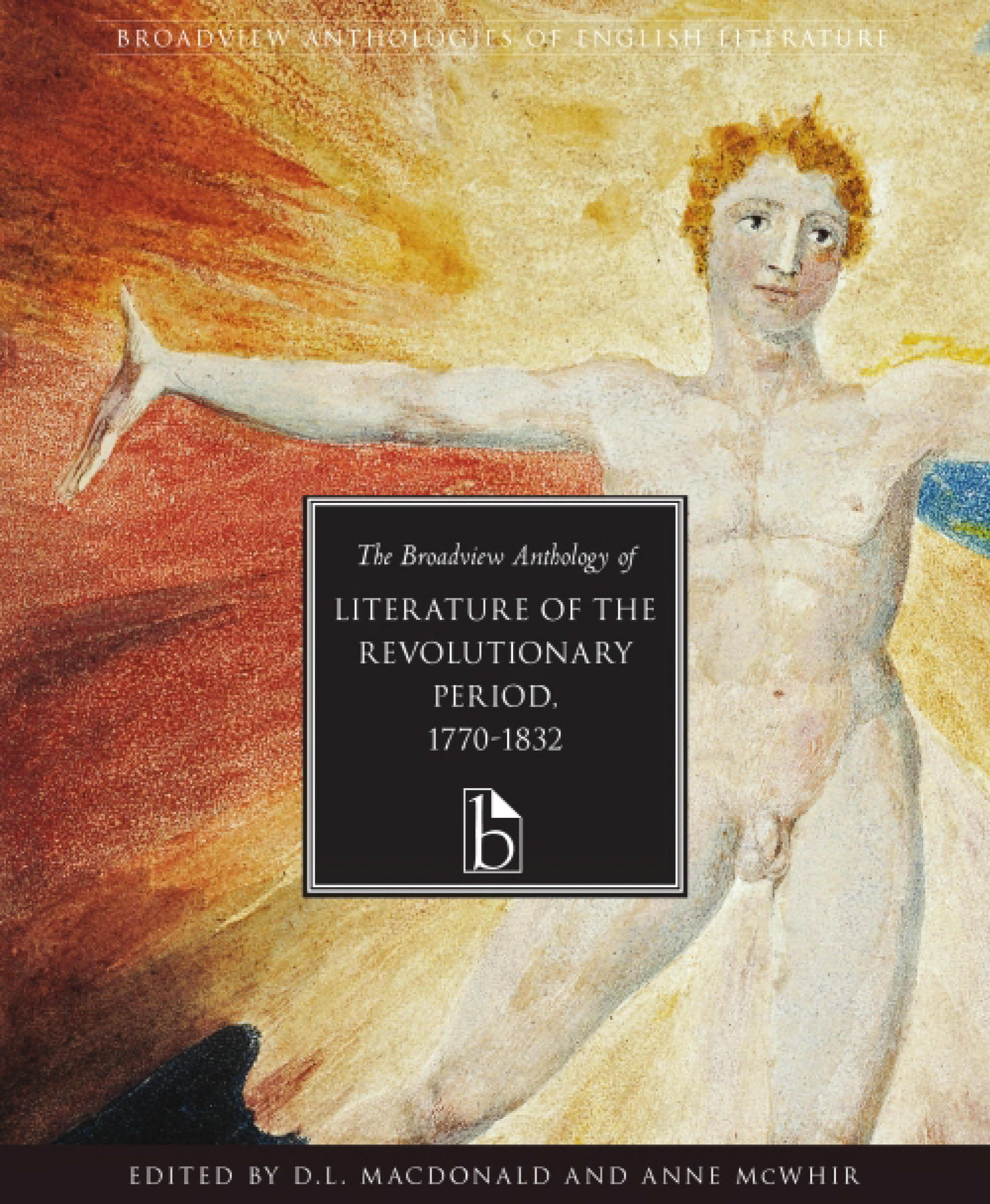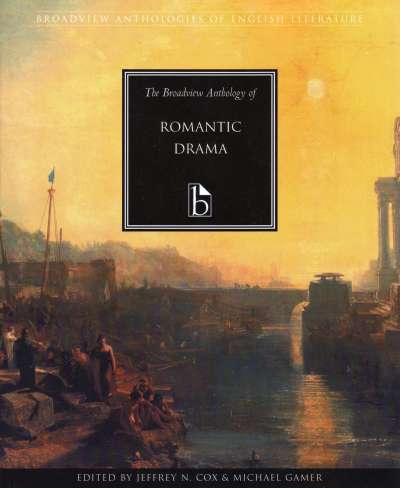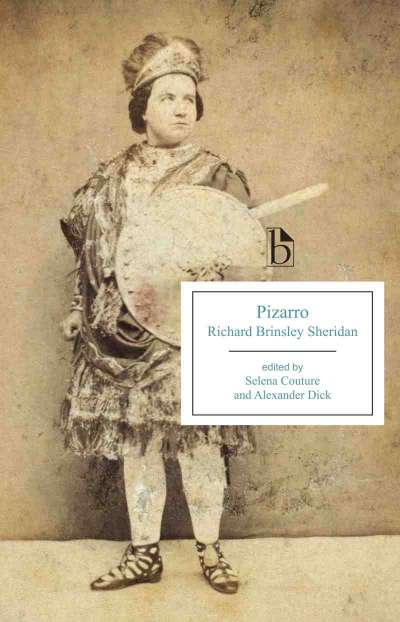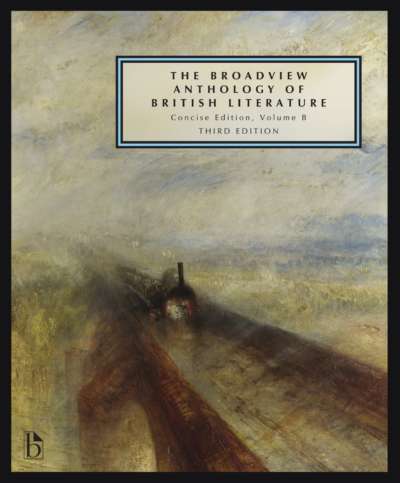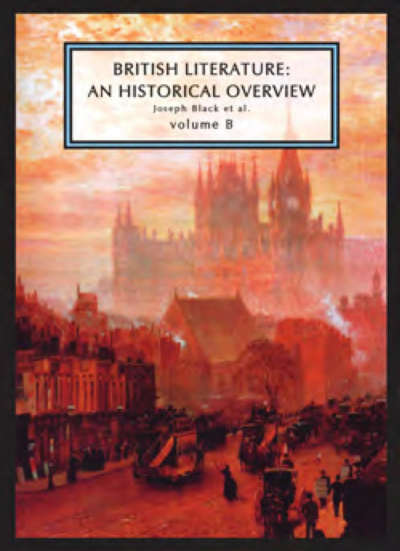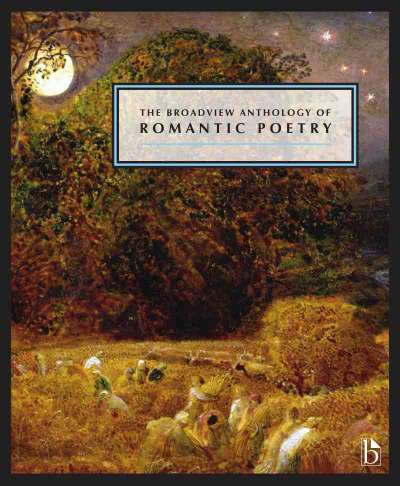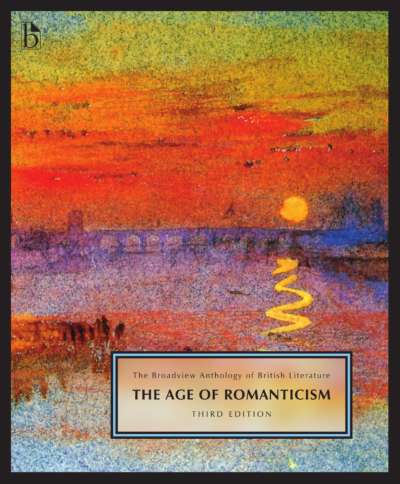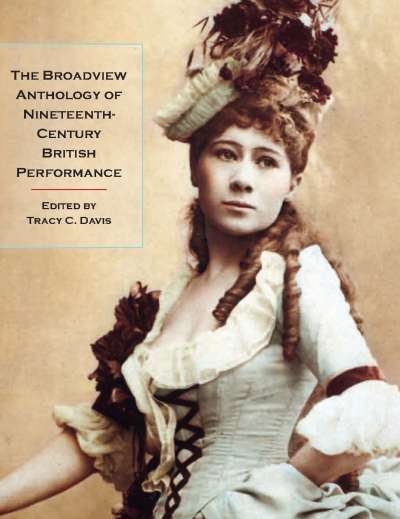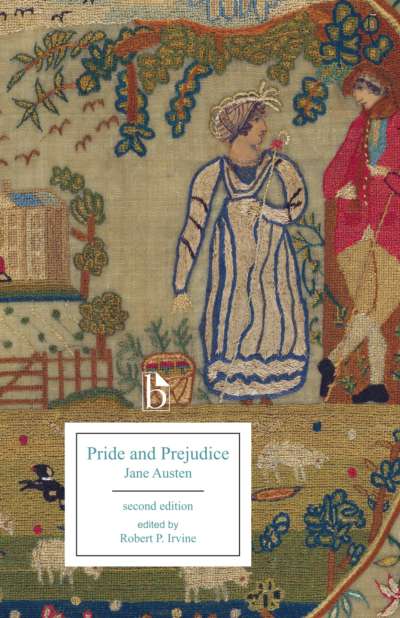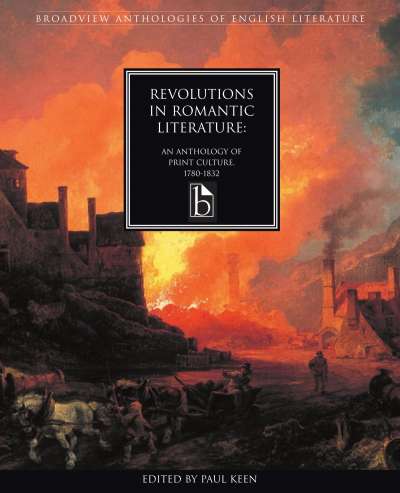EDITORIAL PREFACE
BENJAMIN FRANKLIN (1706 — 1790)
- from Two Tracts: Information to Those Who Would Remove to America. And, Remarks Concerning the
Savages of North America (1784)
- Remarks Concerning the Savages of North-America
RICHARD PRICE (1723 — 1791)
- from A Discourse on the Love of our Country, delivered on Nov. 4, 1789, at the Meeting-House in the Old Jewry, to the Society for Commemorating the Revolution in Great Britain (1789)
SIR JOSHUA REYNOLDS (1723 — 1792)
- from Seven Discourses Delivered in the Royal Academy by the President (1778)
- from A Discourse, Delivered to the Students of the Royal Academy, on the Distribution of the Prizes, December 10, 1776, by the President [DISCOURSE 7]
CLARA REEVE (1729 — 1807)
- from The Progress of Romance, through Times, Countries, and Manners; with Remarks on the Good
and Bad Effects of It, on Them Respectively; in a Course of Evening Conversations (1785)
from Evening 7
EDMUND BURKE (1729? — 1797)
- from Reflections on the Revolution in France, and on the Proceedings in Certain Societies in London
Relative to That Event. In a Letter Intended to Have Been Sent to a Gentleman in Paris (1790)
A Letter from the Right Honourable Edmund Burke to a Noble Lord, on the Attacks Made Upon Him
and His Pension, in the House of Lords, by the Duke of Bedford and the Earl of Lauderdale, Early
in the Present Sessions of Parliament (1796)
IGNATIUS SANCHO (1729? — 17 80)
- from Letters of the Late Ignatius Sancho, an African. To Which are Prefixed Memoirs of his Life, by Joseph Jekyll, Esq. M.P. 5th ed. (1803)
JOHN SCOTT (1730 — 1783)
- from Poetical Works (1782)
- Ode 13 [“I hate that drum’s discordant sound”]
OLIVER GOLDSMITH (1730? — 1774)
- The Deserted Village, A Poem (1770)
CATHARINE MACAULAY (1731 — 1791)
- from Letters on Education, with Observations on Religious and Metaphysical Subjects (1790)
WILLIAM COWPER (1731 — 1800)
- from The Task, A Poem, in Six Books (1785)
- from BOOK 2, The Time-Piece
- from The Works of William Cowper, Esq. comprising his Poems, Correspondence, and Translations, ed. Robert Southey (1837)
- The Negro’s Complaint
Sweet Meat Has Sour Sauce: or, The Slave-Trader in the Dumps
- from Life, and Posthumous Writings of William Cowper, ed. William Hayley (1803)
- Sonnet, to William Wilberforce, Esq.
The Cast-Away
ERASMUS DARWIN (1731 — 1802)
- from The Temple of Nature; or, The Origin of Society: A Poem. With Philosophical Notes (1803)
- from CANTO 4, Of Good and Evil
JOHN ADAMS (1734 — 1826) and ABIGAIL ADAMS (1744 — 1818)
- Letters
- Abigail Adams to John Adams, 31 March 1776
John Adams to Abigail Adams, 14 April 1776
J. HECTOR ST . JOHN DE CRÈVECOEUR (1735 — 1813)
- from Letters from an American Farmer (1782)
- from LETTER 12, Distresses of a Frontier Man
THOMAS PAINE (1737 — 1809)
- from The Age of Reason; Being an Investigation of True and Fabulous Theology (1794)
CHARLOTTE BROOKE (1740 — 1793)
- from Reliques of Irish Poetry: Consisting of Heroic Poems, Odes, Elegies, and Songs, Translated into English Verse: with Notes Explanatory and Historical; and the Originals in the Irish Character. To Which is Subjoined an Irish Tale (1789)
- The Lamentation of Cucullin, over the Body of his Son Conloch
Song. For Mable Kelly. By Carolan
ANNA SEWARD (1742 — 1809)
- from Llangollen Vale, with Other Poems (1796)
- Eyam
To Time Past. Written Dec. 1772
- from Original Sonnets on Various Subjects; and Odes Paraphrased from Horace (1799)
- Sonnet 10. To Honora Sneyd
Sonnet 71. To the Poppy
HANNAH COWLEY (1743 — 1809)
- from the World, Fashionable Advertiser (10 July 1787)
- from the World (22 December 1787)
THOMAS JEFFERSON (1743 — 1826)
- In Congress, July 4, 1776, A Declaration by the Representatives of the United States of America, in Congress Assembled
ANNA LAETITIA BARBAULD (1743 — 1825)
- from Poems (1773)
- The Mouse’s Petition, Found in the Trap Where He Had Been C onfin’d All Night
A Summer Evening’s Meditation
- An Address to the Opposers of the Repeal of the Corporation and Test Acts (1790)
Epistle to William Wilberforce, Esq. on the Rejection of the Bill for Abolishing the Slave-Trade (1791)
from the Monthly Magazine 4 (July—December 1797)
- from the Monthly Magazine 7 (January—June 1799)
- Eighteen Hundred and Eleven, A Poem (1812)
from The Works of Anna Laetitia Barbauld. With A Memoir by Lucy Aikin (1825)
- The Rights of Woman
Inscription for an Ice-House
To the Poor
To a Little Invisible Being Who Is Expected Soon to Become Visible
The First Fire. October 1st, 1815
HANNAH MORE (1745 — 1833)
- Slavery, A Poem (1788)
Village Politics. Addressed to All the Mechanics, Journeymen, and Day Labourers, in Great Britain.
By Will Chip, a Country Carpenter (1792)
- A Dialogue between Jack Anvil the Blacksmith, and Tom Hod the Mason
- from Cheap Repository Tracts (1795)
- Patient Joe; or, the Newcastle Collier
- from Strictures on the Modern System of Female Education. With a View of the Principles and Conduct Prevalent among Women of Rank and Fortune (1799)
THOMAS BELLAMY (1745 — 1800)
- The Benevolent Planters: A Dramatic Piece as performed at the Theatre Royal, Haymarket (1789)
SAMUEL HEARNE (1745 — 1792)
- from A Journey from Prince of Wales’s Fort in Hudson’s Bay to the Northern Ocean (1795)
- from CHAPTER 4
from CHAPTER 5
from CHAPTRE 9
OLAUDAH EQUIANO (1745? — 1797)
- from The Interesting Narrative of the Life of Olaudah Equiano, or Gustavus Vassa, the African. Written by Himself (1789)
ELIZABETH HANDS (1746? — 18 15)
- from The Death of Amnon. A Poem. With an Appendix: Containing Pastorals, and Other
Poetical Pieces (1789)
- A Poem, On the Supposition of an Advertisement Appearing in a Morning Paper, of the Publication of a Volume of Poems, by a Servant Maid
A Poem, On the Supposition of the Book Having Been Published and Read
Written, Originally Extempore, on Seeing a Mad Heifer Run through the Village Where the Author Lives
SUSANNA BLAMIRE (1747 — 1794)
- from The Poetical Works of Miss Susanna Blamire, “The Muse of Cumberland” (1842)
- from Stoklewath Or, The Cumbrian Village
CHARLOTTE SMITH (1749 — 1806)
- from Elegiac Son nets. Third Edition, with Twenty Additional Sonnets (1786)
- 1. [“The partial Muse, has from my earliest hours”]
3. To a nightingale
4. To the moon
7. On the departure of the nightingale
17. From the th irteenth cantata of Metasta sio
21. Supposed to be written by Werter
24. By the same
25. By the same. Just before his death
27. [“Sighing I see yon little troop at play”]
32. To Melancholy. Written on the banks of the Arun, October, 1785
35. To fortitude
- from Elegiac Sonnets, by Charlotte Smith. The Fifth Edition, with Additional Sonnets and Other Poems (1789)
- 44. Written in the Church Yard at M iddleton in Sussex
- from Elegiac Sonnets. The Sixth Edition, with Additional Sonnets and Other Poems (1792)
- Thirty-Eight. Address’d to M rs. H——Y
- The Emigrants, A Poem, in Two Books (1793)
- To William Cowper, Esq.
BOOK 1
BOOK 2
PRISCILLA WAKEFIELD (1750 — 1832)
- from Excursions in North America, Described in Letters from a Gentleman and his Young Companion, to Their Friends in England (1806)
- LETTER 32, Mr. Henry Franklin to Edwin Middleton
LADY ANNE LINDSAY (1750 — 1825)
- Auld Robin Gray; A Ballad, ed. Sir Walter Scott (1825)
CATHERINE ANN DORSET (1750? — 1817?)
- from The Peacock at Home; and Other Poems (1809)
THOMAS CARY (1751 — 1823)
- from Abram’s Plains: A Poem (1789)
PHILIP FRENEAU (1752 — 1832)
- from Poems Written between the Years 1768 & 1794 (1795)
- The Indian Burying-Ground
The Wild Honey Suckle
George the Third’s Soliloquy
To Sir Toby, a Sugar-Planter in the Interior Parts of Jamaica
FRANCES BURNEY (1752 — 1840)
- from The Journals and Letters of Fanny Burney (M adame d’Arblay), ed. Joyce Hemlow et al. (1975)
- from Letter to Esther Burney, 22 March—June 1812
THOMAS CHATTERTON (1752 — 1770)
- from Poems, Supposed to Have Been Written at Bristol, by Thomas Rowley, and Others, in the Fifteenth Century; The Greatest Part Now First Published from the Most Authentic Copies, with an Engraved Specimen of One of the MSS. (1777)
The Storie of William Canynge
On Happienesse, by William Canynge
- from A Supplement to the Miscellanies of Thomas Chatterton (1784)
- Heccar and Gaira. An African Eclogue Jan. 3, 1770
- from William Barrett, The History and Antiquities of the City of Bristol (1789)
ELIZABETH INCHBALD (1753 — 1821)
- from The British Theatre (1806—09)
- On De Monfort; a Tragedy, in Five Acts; by Joanna Baillie, as Performed at the Theatre Royal,
Drury Lane
On Lovers’ Vows; A Play in Five Acts; Altered from the German of Kotzebue, by M rs. Inchbald.
As Performed at the Theatre Royal, Covent-Garden
PHILLIS WHEATLEY (c. 1753 — 1784)
- from Poems on Various Subjects, Religious and Moral. By Phillis Wheatley, Negro Servant to Mr. John Wheatley of Boston, in New England (1773)
- On Being Brought from Africa to America
On the Death of the Rev. Mr. George Whitefield. 1770
To the Right Honourable William, Earl of Dartmouth, His Majesty’s Principal Secretary of State
for North America, &c.
To S.M. a Young African Painter, on Seeing His Works
ANN YEARSLEY (c. 1753 — 1806)
- from Poems, on Several Occasions. By Ann Yearsley, a Milkwoman of Bristol (1785)
- To the Same [Stella]; on Her Accusing the Author of Flattery, and of Ascribing to the Creature
That Praise Which Is Due Only to the Creator
On Mrs. Montagu
- Reflections on the Death of Louis XVI (1793)
from The Rural Lyre; A Volume of Poems: Dedicated to the Right Honourable the Earl of Bristol,
Lord Bishop of Derry (1796)
- To Mira, on the Care of Her Infant
JOEL BARLOW (1754 — 1812)
GEORGE CRABBE (1754 — 1832)
- from The Borough: A Poem in Twenty-four Letters (1810)
- LETTER 22, The Poor of the Borough. Peter Grimes
ANNE GRANT (1755 — 1838)
- from The Highlanders, and Other Poems, 2nd ed. (1808)
- A Familiar Epistle to a Friend. Written in 1795
ROBERT MERRY (1755 — 1798)
- from the British Album (1790)
- The Adieu and Recall to Love
To Anna Matilda
The Interview
WILLIAM GODWIN (1756 — 1836)
- from An Enquiry Concerning Political Justice, and Its Influence on General Virtue and Happiness (1793)
- from BOOK 2, Principles of Society, from CHAPTER 2, Of Justice
from BOOK 8, Of Property, from CHAPTER 8, Of the Means of Introducing the Genuine
System of Property
- from Memoirs of the Author of A Vindication of the Rights of Woman (1798)
- from CHAPTER 6, 1790—1792
from CHAPTER 9, 1796, 1797
from CHAPTER 10
GEORGIANA CAVENDISH (1757 — 1806)
- The Passage of the Mountain of Saint Gothard. A Poem (1802)
WILLIAM BLAKE (1757 — 1827)
- from Songs of Innocence (1789)
- Introduction
The Ecchoing Green
The Lamb
The Little Black Boy
A Dream
The Chimney Sweeper
The Divine Image
Holy Thursday
Nurse’s Song
Infant Joy
- The Marriage of Heaven and Hell (1793)
Visions of the Daughters of Albion (1793)
America a Prophecy (1793)
from Songs of Innocence and of E xperience, Shewing the Two Contrary States of the Human Soul (1794)
- from Songs of Experience
- Introduction
Earth’s Answer
The Clod & the Pebble
Holy Thursday
The Little Girl Lost
The Little Girl Found
The Chimney Sweeper
The Sick Rose
The Fly
The Tyger
My Pretty Rose Tree
Ah! Sun-Flower
The Garden of Love
London
The Human Abstract
Infant Sorrow
A Poison Tree
- from Milton (1800—08)
- from The Pickering Manuscript
- The Mental Traveller
The Crystal Cabinet
Auguries of Innocence
- Marginalia
- from Annotations to the Works of Sir Joshua Reynolds (1798)
Annotations to Wordsworth’s Preface to The Excursion, being a portion of The Recluse, A Poem (1814)
from Annotations to Thornton’s The Lord’s Prayer, Newly Translated (1827)
- Letters
- [To] Revd Dr Trusler, 23 August 1799
To Thomas Butts, 22 November 1802
HARRIET LEE (1757 — 1851)
- from Canterbury Tales (1795—1805)
- The Old Woman’s Tale. Lothaire: A Legend
OTTOBAH CUGOANO (c. 1757 — c. 1801)
- from Thoughts and Sentiments on the Evil and Wicked Traffic of the Slavery and Commerce of the
Human Species, Humbly Submitted to the Inhabitants of Great-Britain (1787)
MARY ROBINSON (1758 — 1800)
- from Poems (1791)
- from the Morning Post (29 January 1795)
- Sappho and Phaon. In a Series of Legitimate Sonnets, with Thoughts on Poetica l Subjects, and
Anecdotes of the Grecian Poetess (1796)
- from Lyrical Tales (1800)
- The Haunted Beach
- The Negro Girl
- The Alien Boy
- from the Morning Post (1 August 1800)
- from The Wild Wreath (1804)
- A London Summer Morning
- The Poet’s Garret
- from The Poetical Works of the Late Mrs. Mary Robinson (1806)
- To the Poet Coleridge
The Savage of Aveyron
The Birth-Day
The Wintry Day
The Old Beggar
HENRIETTA O’NEILL (1758 — 1793)
- from Desmond. A Novel. By Charlotte Smith (1792)
ROBERT BURNS (1759 — 1796)
- from Poems, Chiefly in the Scottish Dialect (1786)
- To a Mouse, On turning her up in her Nest, with the Plough, November, 1785
To A Mountain-Daisy, On turning one down, with the Plough, in April—1786
To A Louse, On Seeing one on a Lady’s Bonnet, at Church
- from Poems, Chiefly in the Scottish Dialect (1787)
- John Barleycorn. A Ballad
- from Francis Grose, The Antiquities of Scotland (1791)
- from Holy Willie’s Prayer, Letter to John Goudie, Kilmarnock, and Six Favourite Songs (1799)
- Holy Willie’s Prayer
A Man’s a Man, for a’ That: A Song
- from The Scots Musical Museum (1787—1803)
- Ae Fond Kiss, And Then We Sever
A Red, Red Rose
Comin’ thro’ the Rye
- from The Poems and Songs of Robert Burns, ed. James Kinsley (1968)
- Auld Lang Syne
The Rights of Woman—Spoken by Miss Fontenelle on her benefit night, November 26, 1792
Robert Bruce’s March to Bannockburn
MARY WOLLSTONECRAFT (1759 —1797)
- from A Vindication of the Rights of Men, in a Letter to the Right Honourable Edmund Burke;
Occasioned by his Reflections on the Revolution in France (1790)
from A Vindication of the Rights of Woman (1792)
- Dedication, To M. Talleyrand-Périgord, Late Bishop Of Autun
Introduction
CHAPTER 2, The Prevailing Opinion of a Sexual Character Discussed
CHAPTER 3, The Same Subject Continued
CHAPTER 4, Observations on the State of Degradation to Which Woman Is Reduced by
Various Causes
from CHAPTER 13, Some Instances of the Folly W hich the Ignorance of Women Generates;
with Concluding Reflections on the Moral Improvement That a Revolution in Female
Manners Might Naturally Be Expected to Produce, Section 2
- from Letters Written During a Short Residence in Sweden, Norway, and Denmark (1796)
- ADVERTISEMENT
LETTER 1
LETTER 6
LETTER 7
LETTER 8
LETTER 15
- from Posthumous Works of the Author of A Vindication of the Rights of Woman (1798)
- from The Wrongs of Woman: or Maria. A Fragment, CHAPTER 5
On Poetry, and Our Relish for the Beauties of Nature
- Letters
- To Joseph Johnson, 26 December 1792
To Gilbert Imlay, 19 August 1794
To Gilbert Imlay, 9 February 1795
To Gilbert Imlay, c. March 1796
To William Godwin, 17 August 1796
To William Godwin, 17 August 1796
HELEN LEIGH (fl. 1788)
- from Miscellaneous Poems (1788)
MARIA LOGAN (fl. 1793)
- from Poems on Several Occasions. 2nd ed. (1793)
- To Opium
Verses On Hearing That an Airy and Pleasant Situation, near a Populous and Commercial
Town, Was Surrounded with New Buildings
JANET LITTLE (1759 — 1813)
- from The Poetical Works of Janet Little, the Scotch Milkmaid (1792)
- Given to a Lady Who Asked Me to Write A Poem
RICHARD POLWHELE (1760 — 1838)
- The Unsex’d Females: A Poem (1798)
THOMAS CLARKSON (1760 — 1846)
- from An Essay on the Slavery and Commerce of the Human Species, particularly the African ,
translated from a Latin Dissertation, which was honoured with the First Prize in the University of
Cambridge for the Year 1785 (1786)
- from PART 3, The Slavery of the Africans in the European Colonies, CHAPTER 1
- from The History of the Rise, Progress and Accomplishment of the Abolition of the African Slave-trade, by the British Parliament (1808)
- Illustration of a Slave Ship
MARY HAYS (1760 — 1843)
- from Appeal to the Men of Great Britain in Behalf of Women (1798)
HELEN MARIA WILLIAMS (1761 — 1827)
- from Letters Written in France, in the Summer 1790, to a Friend in England; Containing, Various
Anecdotes Relative to the French Revolution; and Memoirs of Mons. and Madame du F—— (1790)
- A Farewell, for Two Years, to England. A Poem (1791)
from Poems on Various Subjects. W ith Introductory Remarks on the Present State of Science and Literature in France (1823)
- To Sensibility
Sonnet: To the Torrid Zone
JOANNA BAILLIE (1762 — 1851)
- from Poems; Wherein It Is Attempted to Describe Certain Views of Nature and of Rustic Manners; and also, To Point Out, in Some Instances, the Different Influence Which the Same Circumstances Produce on Different Characters (1790)
- A Winter Day
Thunder
A Mother to Her Waking Infant
A Child to his Sick Grand-Father
- from A Series of Plays: In Which it Is Attempted to Delineate the Stronger Passions of the Mind. Each Passion being the Subject of a Tragedy and a Comedy (1798)
- from Introductory Discourse
De Monfort
- from Fugitive Verses (1840)
- Thunder
Song, Woo’d and Married and A’
WILLIAM LISLE BOWLES (1762 — 1850)
- from Fourteen Sonnets, Elegiac and Descriptive. Written During a Tour (1789)
- To the River Itchin, Near Winton
On Dover Cliffs. July 20, 1787
WILLIAM COBBETT (1763 — 1835)
- from Political Register (11 December 1813)
- from To Mr. Alderman Wood, On the Subject of Teaching the Children of the Poor to Read
- from Cobbett’s Weekly Register (5 January 1822)
SAMUEL ROGERS (1763 — 1855)
- from Poems (1812)
- from Poems (1814)
ANN RADCLIFFE (1764 — 1823)
- from The Mysteries of Udolpho, A Romance; Interspersed with Some Pieces of Poetry (1794)
- Storied Sonnet
Rondeau
To Autumn
To Melancholy
- from Gaston de Blondeville (1826)
- Scene on the Northern Shore of Sicily
- from New Monthly Magazine and Literary Journal 16, Part 1 (1826)
- from On the Supernatural in Poetry. By the Late Mrs. Radcliffe
JOHN THELWALL (1764 — 1834)
- from Poems Written in Close Confinement at the Tower and Newgate, under a Charge of High Treason (1795)
- Stanzas On Hearing for Certainty That We Were to be Tried for High Treason
- from Poems Chiefly Written in Retirement (1801)
- To the Infant Hampden.—Written during a Sleepless Night. Derby. Oct. 1797
CATHERINE MARIA FANSHAWE (1765 — 1834)
- from A Collection of Poems, Chiefly Manuscript, and from Living Authors, ed. Joanna Baillie (1823)
ROBERT BLOOMFIELD (1766 — 1823)
- from The Farmer’s Boy; A Rural Poem (1800)
THOMAS ROBERT MALTHUS (1766 — 1834)
- from An Essay on the Principle of Population, as It Affects the Future Improvement of Society.
With Remarks on the Speculations of Mr. Godwin, M. Condorcet, and Other Writers (1798)
CAROLINA OLIPHANT, LADY NAIRNE (1766 — 1845)
- from The Scottish Minstrel (1821—24)
- The Land o’ the Leal
Caller Herrin’
The Laird o’ Cockpen
MARIA EDGEWORTH (1768 — 1849)
- from Popular Tales in Two Volumes (1804)
ANN BATTEN CRISTALL (c. 1768 — after 1816)
- from Poetical Sketches, in Irregular Verse (1795)
- Before Twilight. Eyezion
Morning. Rosamonde
Noon. Lysander
Evening. Gertrude
Night
JANE MARCET (1769 — 1858)
- from Conversations on Political Economy; in Which the Elements of that Science are Familiarly Explained (1816)
- from CONVERSATION 10, On the Condition of the Poor
AMELIA OPIE (1769 — 1853)
- from Poems (1802)
- Song of a Hindustani Girl
- from The Warrior’s Return, and Other Poems (1808)
GEORGE CANNING (1770 — 1827) and JOHN HOOKHAM FRERE (1769 — 1846)
- from The Anti-Jacobin; or, Weekly Examiner (27 November 1797)
- Sapphics: The Friend of Humanity and the Knife-Grinder
- from The New Morality
WILLIAM WORDSWORTH (1770 — 1850)
- from Lyrical Ballads, with A Few Other Poems (1798)
- Advertisement
Goody Blake, and Harry Gill, a true story
Simon Lee, the old Huntsman, with an incident in which he was concerned
Anecdote for Fathers, shewing how the art of lying may be taught
We are Seven
Lines Written in Early Spring
The Thorn
The Idiot Boy
Expostulation and Reply
The Tables Turned; an Evening Scene, on the same subject
Old Man Travelling; animal tranquility and decay, a sketch
The Complaint of a Forsaken Indian Woman
Lines Written a Few Miles Above Tintern Abbey, on revisiting the banks of the Wye during a tour, July 13, 1798
- from Lyrical Ballads, with Other Poems. In Two Volumes (1800)
- Preface
There was a Boy
Strange fits of passion I have known
Song [“She dwelt among th’ untrodden ways”]
A slumber did my spirit seal
Lucy Gray
The Two April Mornings
Nutting
Three years she grew in sun and shower
Michael, A Pastoral Poem
- from Poems in Two Volumes (1807)
- I travell’d among unknown Men
Beggars
Resolution and Independence
Composed upon Westminster Bridge, Sept. 3, 1802
The world is too much with us; late and soon
It is a beauteous Evening, calm and free
To Toussaint L’Ouverture
London, 1802
The Solitary Reaper
To a Butterfly [“Stay near me—do not take thy flight!”]
My heart leaps up when I behold
I wandered lonely as a Cloud
To a Butterfly [“I’ve watch’d you now a full half hour”]
To Thomas Clarkson, On the final passing of the Bill for the Abolition of the Slave Trade, March 1807
Elegiac Stanzas, Suggested by a Picture of Peele Castle, in a Storm, painted by Sir George Beaumont
Ode
- from the Friend, 11 (26 October 1809)
- Oh! pleasant exercise of hope and joy!
- from The Excursion, Being a Portion of The Recluse, A Poem (1814)
- from Poems by William Wordsworth: including Lyrical Ballads, and the Miscellaneous Pieces
of the Author. With Additional Poems, a New Preface, and a Supplementary Essay (1815)
- Surprized by joy—impatient as the Wind
- from The River Duddon, a Series of Son nets: Vaudracour and Julia: and Other Poems. To Which Is
Annexed, a Topographical Description of the Coun try of the Lakes, in the North of England (1820)
- from The Poetical Works of William Wordsworth. In Five Volumes (1827)
- Scorn not the Sonnet; Critic, you have frowned
- from the Athenæum (12 December 1835)
- The Ettrick Shepherd. Extempore Effusion, upon reading, in the Newcastle Journal, the notice of the Death of the Poet, James Hogg
- from Poems, Chiefly of Early and Late Years; including The Borderers, A Tragedy (1842)
- The unremitting voice of nightly streams
- from The Prelude 1799, 1805, 1850, ed. Jonathan Wordsworth, M.H. Abrams, and Stephen Gill (1979)
- The Two-Part Prelude of 1799
- Letters
- To Charles James Fox, 14 January 1801
To Mary Wordsworth, 11 August 1810
JAMES HOGG (1770 — 1835)
- from The Queen’s Wake: A Legendary Poem, 3rd ed. (1814)
CHARLES BROCKDEN BROWN (1771 — 1810)
- from the Literary Magazine and American Register 6.35 (1806)
SIR WALTER SCOTT (1771 — 1832)
- from Minstrelsy of the Scottish Border: Consisting of Historical and Romantic Ballads, Collected in the Southern Counties of Scotland; with a Few of Modern Date, Founded upon Local Tradition (1802—03)
- from Marmion; A Tale of Flodden Field (1808)
- Song [“Where shall the lover rest”]
Lochinvar. Lady Heron’s Song
- from Miscellaneous Poems (1820)
- The Sun upon the Weirdlaw Hill
DOROTHY WORDSWORTH (1771 — 1855)
- from William Wordsworth, Poems (1815)
- Address to a Child During a Boisterous Winter Evening
- from William Wordsworth, Poems (1842)
- from Susan Levin, Dorothy Wordsworth and Romanticism (1987)
- Grasmere—A Fragment
Thoughts on my Sick-bed
- from Grasmere Journal
- from Tuesday 10 June 1800
from Friday 3 October 1800
Sunday Morning 14 March 1802
15 April 1802
Tuesday 26 July 1802
MARY TIGHE (1772 — 1810)
- from Psyche, with Other Poems. By the Late Mrs. Henry Tighe (1811)
from Psyche; or, The Legend of Love
- On Receiving a Branch of Mezereon Which Flowered at Woodstock.—Dec. 1809
SAMUEL TAYLOR COLERIDGE (1772 — 1834)
- from Poems on Various Subjects (1796)
- Effusion 35. Composed August 20th, 1795, at Clevedon, Somersetshire
- from the Morning Post (8 January 1798)
- Fire, Famine, and Slaughter. A War Eclogue
- Fears in Solitude, Written in 1798 (1798)
- Fears in Solitude
France. An Ode
Frost at Midnight
- from Lyrical Ballads, with a Few Other Poems (1798)
- The Rime of the Ancyent Marinere, in Seven Parts
- from Sibylline Leaves: A Collection of Poems (1817)
- The Rime of the Ancient Mariner. In Seven Parts
- from Lyrical Ballads (1798)
- The Nightingale; A Conversational Poem, Written in April, 1798
The Dungeon
- from the Annual Anthology (1800)
- This Lime-Tree Bower My Prison, A Poem, Addressed to Charles Lamb, of the India-House, London
- from Memoirs of the Late Mrs. Robinson (1801)
- A Stranger Minstrel. By S.T. Coleridge, Esq.Written to M rs. Robinson a Few Weeks before Her Death
- Christabel: Kubla Khan, a Vision; The Pains of Sleep (1816)
- Christabel
Kubla Khan: or A Vision in a Dream
The Pains of Sleep
- from Sibylline Leaves: A Collection of Poems (1817)
- To a Gentleman Composed on the night after his recitation of a Poem on the Growth of an Individual Mind
Dejection: An Ode
- from Biographia Literaria; or Biographical Sketches of M y Literary Life and Opinions (1817)
- from CHAPTER 4
from CHAPTER 13
CHAPTER 14
from CHAPTER 17
from CHAPTER 18
from CHAPTER 23
- from The Poetical Works of S.T. Coleridge: including the dramas of Wallenstein, Remorse, and
Zapolya (1828)
- Constancy to an Ideal Object
- Letter
- To Joseph Cottle, 26 April 1814
RAJA RAMMOHUN ROY (1772? — 1833)
- from Petitions Against the Press Regulation (1823)
- Memorial to the Supreme Court
- Abstract of the Arguments regarding the Burning of Widows, Considered as a Religious Rite (1830)
CHRISTIAN MILNE (1772? — after 1816)
- from Simple Poems, on Simple Subjects. By Christian Milne, Wife of a Journeyman Ship-Carpenter in Footdee, Aberdeen (1805)
- To a Lady, Who Said It Was Sinful to Read Novels
Sent with a Flower Pot, Begging a Slip of Geranium
FRANCIS JEFFREY (1773 — 1850)
- from the Edinburgh Review, or Critical Journal 24 (Nov. 1814)
- from ART. 1 The Excursion, being a portion of the Recluse, A Poem. By William Wordsworth
ROBERT SOUTHEY (1774 — 1843)
- from Poems (1797)
- To Mary Wollstonecraft
The Widow. Sapphics
The Soldier’s Wife. Dactylics
- from the Morning Post (30 June 1798)
- from Poems (1799)
- The Sailor, Who Had Served in the Slave-Trade
- from the Annual Anthology (1800)
- from Letters from England: by Don Manuel Alvarez Espriella. Translated from the Spanish (1807)
- from A Collection of Poems, Chiefly Manuscript, and from Living Authors, ed. Joanna Baillie (1823)
- The Cataract of Lodore, Described in Rhymes for the Nursery, by One of the Lake Poets
- from The Poetical Works of Robert Southey (1853)
- Bishop Bruno
- My Days Among the Dead Are Passed
WALTER SAVAGE LANDOR (1775 — 1864)
- from Simonidea (1806)
- [ Rose Aylmer ]
Mother, I Cannot Mind My Wheel
- from Gebir, Count Julian, and Other Poems (1831)
- Past ruin’d Ilion Helen lives
MARY LAMB (1764 — 1847) and CHARLES LAMB (1775 — 1834)
- from Blank Verse by Charles Lloyd and Charles Lamb (1798)
- from Charles Lamb and Mary Lamb, Poetry for Children (1809)
- The Reaper’s Child
Choosing a Profession
Breakfast
The Two Boys
Conquest of Prejudice
- from Charles Lamb, Elia (1823)
- Dream-Children; A Reverie
- Letters
- To S.T. Coleridge, 27 September 1796
To William Wordsworth, 30 January 1801
from To Thomas Manning, 15 February 1801
CHARLES LLOYD (1775 — 1839)
- from Blank Verse by Charles Lloyd and Charles Lamb (1798)
- Lines to Mary Wollstonecraft Godwin
CHARLOTTE RICHARDSON (1775 — 1825)
- from Harvest, A Poem, in Two Parts; with Other Poetical Pieces (1818)
- The Redbreast
The Rainbow
MATTHEW GREGORY LEWIS (1775 — 1818)
- from The Monk: A Romance (1796)
- Alonzo the Brave and Fair Imogine
- from The Life and Correspondence of M.G. Lewis, author of “The Monk,” “Castle Spectre,” &c.
with Many Pieces in Prose and Verse, Never Before Published (1839)
JANE AUSTEN (1775 — 1817)
- Love and Freindship
from Northanger Abbey (1818)
THOMAS CAMPBELL (1777 — 1844)
- from New Monthly Magazine and Literary Journal 8, original papers (March 1823)
WILLIAM HAZLITT (1778 — 1830)
- from The Round Table, Examiner (Sunday, 26 May 1816)
- from The Liberal. Verse and Prose from the South 2 (1823)
- My First Acquaintance with Poets
- from The Plain Speaker: Opinions on Books, Men, and Things (1826)
- from On the Prose-Style of Poets
SYDNEY OWENSON, LADY MORGAN (c. 1778 — 1859)
- from The Lay of an Irish Harp; or M etrical Fragments (1807)
- from Italy (1821)
- from CHAPTER 2, Passage of the Alps
THOMAS MOORE (1779 — 1852)
- from The Works of Thomas Moore, Esq., Comprehending All His Melodies, Ballads, etc. Never Before Published Without the Accompanying Music (1819)
- A Canadian Boat-Song. Written on the River St.-Lawrence
Written on Passing Deadman’s Island, in the Gulf of St. Lawrence, Late in the Evening, September, 1804
- from Melodies, by Thomas Moore, Esq. (1821)
- Oh! Breathe Not His Name
The Harp that once through Tara’s Halls
Believe Me if all those Endearing Young Charms
The Minstrel Boy
The Time I’ve Lost in Wooing
HORACE SMITH (1779 — 1849)
- from Amarynthus, the Nympholept: A Pastoral Drama, in Three Acts. With Other Poems (1821)
- On a Stupendous Leg of Granite, Discovered Standing by Itself in the Deserts of Egypt,
with the Inscription Inserted Below
On the Spanish Revolution
WILLIAM HONE (1780 — 1842)
- The Political House That Jack Built (1819)
JOHN WILSON CROKER (1780 — 1857)
- from the Quarterly Review 7 (March and June 1812)
- Review of Barbauld’s Eighteen Hundred and Eleven
- from the Quarterly Review 19 (April 1818)
- Review of Keats’s Endymion: A Poetic Romance
EBENEZER ELLIOTT (1781 — 1849)
- from Corn Law Rhymes, 3rd ed. (1831)
LUCY AIKIN (1781 — 1864)
- from Epistles on women, exemplifying their character and condition in va rious ages and nations. With miscellaneous poems (1810)
- INTRODUCTION
EPISTLE 1
EPISTLE 2
CHARLOTTE DACRE (1782? — 18 25)
- from Hours of Solitude. A Collection of O riginal Poems, now first published (1805)
- The Poor Negro Sadi
The Female Philosopher
The Apparition
Drinking Song
JANE TAYLOR (1783 — 1824)
- from Rhymes for the Nursery (1806)
- from Essays in Rhyme, on Morals and Manners, 3rd ed. (1817)
WASHINGTON IRVING (1783 — 1859)
- from The Sketch Book of Geoffrey Crayon, Gent. (1819)
- Rip Van Winkle. A Posthumous Writing of Diedrich Knickerbocker
LEIGH HUNT (1784 — 1859)
- from The Story of Rimini (1816)
- from the Examiner (21 September 1817)
- Green little vaulter in the sunny grass
- from Foliage (1818)
- To Percy Shelley, on the Degrading Notions of Deity
- from S.C. Hall, Book of Gems (1838)
- Abou Ben Adhem and the Angel
- from the Morning Chronicle 2 (November 1838)
THOMAS DE QUINCEY (1785 — 1859)
- from the London Magazine 4 (September 1821)
- from Confessions of an English Opium-Eater: Being an Extract from the Life of a Scholar
- from the London Magazine 4 (October 1821)
- from Introduction to the Pains of Opium
from The Pains of Opium
- from the London Magazine 8 (October 1823)
- On the Knocking at the Gate in Macbeth
THOMAS LOVE PEACOCK (1785 — 1866)
- from Ollier’s Literary Miscellany (1820)
- from The Four Ages of Poetry
CAROLINE LAMB (1785 — 1828)
- A New Canto (1819)
from Ada Reis, A Tale (1823)
- from I[saac] Nathan, Fugitive Pieces and Reminiscences of Lord Byron: con taining an entire new edition of the Hebrew Melodies, with the addition of several never before published; … also some
Original Poetry, Letters and Recollections of Lady Caroline Lamb (1829)
- Would I had seen thee dead and cold
BARRON FIELD (1786 — 1846)
- from First Fruits of Australian Poetry (1819)
MARY RUSSELL MITFORD (1787 — 1855)
- from Our Village: Sketches of Rural Character and Scenery (1824)
GEORGE GORDON, LORD BYRON (1788 — 1824)
- The Giaour. A Fragment of a Turkish Tale (1813)
from Hebrew Melodies (1815)
- from Poems (1816)
- from The Prisoner of Chillon and Other Poems (1816)
- from Childe Harold’s Pilgrimage (1816)
- Manfred, A Dramatic Poem (1817)
from Don Juan (1819)
- DEDICATION
CANTO 1
CANTO 2
- Letters
- To Lady Byron, 8 February 1816
To Augusta Leigh, 18—29 September 1816
from To John Murray, 12 August 1819
from To Douglas Kinnaird, 26 October 1819
from To John Murray, 16 February 1821
To Percy Bysshe Shelley, 26 April 1821
MARY PRINCE (c. 1788 — after 1833)
- from The History of Mary Prince, a West Indian Slave. Related by Herself (1831)
THOMAS PRINGLE (1789 — 1834)
- from George Thompson, Travels and Adventures in Southern Africa, comprising a View
of the Present State of the Cape Colony, with Observations on the Progress and Prospects of the British
Emigrants (1827)
JAMES FENIMORE COOPER (1789 — 1851)
- from Notions of the Americans, Picked Up by a Travelling Bachelor (1828)
PERCY BYSSHE SHELLEY (1792 — 1822)
- from Alastor; or, The Spirit of Solitude: and Other Poems (1816)
- Preface
Alastor: Or, The Spirit of Solitude
To Wordsworth
- from History of a Six Weeks’ Tour through a Part of France, Switzerland, Germany, and Holland: with Letters Descriptive of a Sail round the Lake of Geneva, and of the Glaciers of Chamouni (1817)
- from the Examiner (19 January 1817)
- Hymn to Intellectual Beauty
- from the Examiner (11 January 1818)
- from Prometheus Unbound: A Lyrical Drama in Four Acts with Other Poems (1820)
- Prometheus Unbound
Ode to the West Wind
To a Skylark
- The Cenci: A Tragedy, in Five Acts (1820)
Adonais: An Elegy on the Death of John Keats (1821)
from Posthum ous Poems, ed. M.W. Shelley (1824)
- SONNET IV
The Triumph of Life
- The Masque of Anarchy. A Poem (1832)
from the Athenæum 260 (20 October 1832)
- from The Poetical Works of Percy Bysshe Shelley, ed. M.W. Shelley (1839)
- from Essays, Letters from Abroad, Translations and Fragments, ed. M.W. Shelley (1840)
- Letters
- To Thomas Love Peacock, 22 December 1818
To Mary Wollstonecraft Shelley, Bagni di Pisa, 9 August 1821
EDWARD JOHN TRELAWNY (1792 — 1881)
- from Recollections of the Last D ays of Shelley and Byron (1858)
JOHN CLARE (1793 — 1864)
- from The Rural Muse. Poems by John Clare (1835)
- from Frederick Martin, The Life of John Clare (1865)
- from John Clare: Poems Chiefly from Manuscript, ed. Edmund Blunden and Alan Porter (1920)
- Badger
Quail’s Nest
Invitation to Eternity
Clock-a-Clay
- from The Poems of John Clare, ed. J.W. Tibble (1935)
- Enclosure [The Mores]
The Skylark Leaving Her Nest
FELICIA HEMANS (1793 — 1835)
- from Tales, and Historic Scenes, in Verse (1819)
- from The League of the Alps, The Siege of Valencia, the Vespers of Palermo, and Other Poems (1826)
- Casabianca
Evening Prayer at a Girls’ School
- from Records of Woman: with Other Poems (1828)
- The Bride of the Greek Isle
Properzia Rossi
The Indian City
Indian Woman’s Death-Song
Joan of Arc, in Rheims
Madeline. A Domestic Tale
The Grave of a Poetess
The Homes of England
To Wordsworth
The Landing of the Pilgrim Fathers in New England
The Graves of a Household
The Image in Lava
- from Songs of the Affections (1830)
- The Return
Woman on the Field of Battle
The Mirror in the Deserted Hall
JOSEPH SEVERN (1793 — 1879)
- Letter
- To John Taylor, 6 March 1821
JOHN LOCKHART (1794 — 1854)
- from Blackwood’s Edinburgh Magazine 3 (August 1818)
- Cockney School of Poetry. NO. 4
OLIVER GOLDSMITH (1794 — 1861)
- from The Rising Village. A Poem. By Oliver Goldsmith, a Collateral Descendant of the Author
of the “Deserted Village” (1825)
WILLIAM CULLEN BRYANT (1794 — 1878)
- from the North American Review and Miscellaneous Journal (March 1818)
- from Poems (1821)
JOHN KEATS (1795 — 1821)
- from the Examiner (1 December 1816)
- On First Looking into Chapman’s Homer
- from the Examiner (9 March 1817)
- On Seeing the Elgin Marbles
- from the Examiner (21 September 1817)
- The poetry of earth is never dead
- from Endymion (1818)
- from the Indicator (10 May 1820)
- from Lamia, Isabella, Eve of St. Agnes, and Other Poems. By John Keats, auth or of Endymion (1820)
- Lamia
The Eve of St. Agnes
Ode to a Nightingale
Ode on a Grecian Urn
Ode to Psyche
To Autumn
Ode on Melancholy
Hyperion
- from the Indicator (28 June 1820)
- A Dream After Reading Dante’s Episode of Paulo and Francesca
- from the Plymouth and Devonport Weekly Journal (1838)
- On Sitting Down to Read King Lear Once Again
Bright star, would I were stedfast as thou art
- from Life, Letters, and Literary Remains of John Keats, ed. Richard Monkton Milnes (1848)
- Ode on Indolence
When I Have Fears That I May Cease To Be
- from Miscellanies of the Philobiblon Society (1856)
- from Poetical Works of John Keats (1898)
- This living hand, now warm and capable
- Letters
- To Benjamin Bailey, 22 November 1817
To J.H. Reynolds, 22 November 1817
To George and Tom Keats, 21, 27 (?) December 1817
To J.H. Reynolds, 3 February 1818
To J.H. Reynolds, 3 May 1818
To Richard Woodhouse, 27 October 1818
To Percy Bysshe Shelley, 16 August 1820
JOHN RICHARDSON (1796 — 1852)
- from Tecumseh; or, The Warrior of the West: A Poem, in Four Cantos, with Notes (1828)
MARY WOLLSTONECRAFT SHELLEY (1797 — 1851)
- from The Liberal: Verse and Prose from the South 4 (1823)
- from London Magazine 9 (March 1824)
- from The Keepsake (1831)
- Transformation
Absence
A Dirge
- from The Keepsake (1839)
- Stanzas [“How like a star you rose upon my life”]
Stanzas [“O, come to me in dreams, my love!”]
- Letter
- To Maria Gisborne, 15 August 1822
- Journal
WILLIAM APESS (1798 — 1839)
- from A Son of the Forest (1829)
THOMAS HOOD (1799 — 1845)
- from Whims and Oddities, 3rd ed. (1828)
- The Last Man
Faithless Nelly Gray
PETER JONES (1802 — 1856)
- from History of the Ojebway Indians; with Especia l Reference to Their Conversion to Christianity (1861)
CATHERINE PARR TRAILL (1802 — 1899)
- from The Young Emigrants; or, Pictures of Canada, Calculated to Amuse and Instruct the Minds of
Youth (1826)
LETITIA ELIZABETH LANDON (1802 — 1838)
- from The Improvisatrice and Other Poems (1824)
- from The Troubadour, Catalogue of Pictures, and Historical Sketches (1825)
- from The Golden Violet, with its tales of Romance and Chivalry: and Other Poems (1827)
- Love’s Last Lesson
Erinna
- from The Venetian Bracelet, The Lost Pleiad, A History of the Lyre, and Other Poems (1829)
- from the New Monthly Magazine 35 (1832)
- On the Ancient and Modern Influence of Poetry
- from Fisher’s Drawing Room Scrap Book (1836)
- Immolation of a Hindoo Widow
- from The Zenana and Minor Poems of L.E.L. (1839)
- Felicia Hemans
On Wordsworth’s Cottage, near Grasmere Lake
- from Life and Literary Remains of L.E.L., ed. Laman Blanchard (1841)
- A Poet’s Love
Influence of Poetry
Changes in London
THOMAS LOVELL BEDDOES (1803 — 1849)
- from Poems Chiefly from Outidana (composed 1823—25)
- Lines Written in a Blank Leaf of the “Prometheus Unbound”
- from Torrismond (composed 1824)
- Song [“How many times do I love thee, dear?”]
- from Death’s Jest-Book (1825—28)
- Dirge
Song [“A cypress-bough, and a rose-wreath sweet”]
Song [“Old Adam, the carrion crow”]
- from Death’s Jest Book (revised, 1829—49)
- Song from the Waters
Dream-Pedlary
SUSANNA MOODIE (1803 — 1885)
- from Enthusiasm; and Other Poems (1831)
NATHANIEL HAWTHORNE (1804 — 1864)
- from Mosses from an Old Manse (1846)
HENRY WADSWORTH LONGFELLOW (1807 — 1882)
- from Ballads and Other Poems (1842)
- The Wreck of the Hesperus
The Village Blacksmith
Excelsior
- from Poems on Slavery (1842)
EDGAR ALLAN POE (1809 — 1849)
- from Tamerlane and Other Poems (1827)
- from Al Aaraaf, Tamerlane, and Minor Poems (1829)
- from Poems by Edgar A. Poe, 2nd ed. (1831)
- Letter to Mr. — ——
To Helen
The Doomed City
- from the Saturday Courier (14 January 1832)
HENRY LOUIS VIVIAN DEROZIO (1809 — 1831)
- from Poems (1827)
- from The Fakeer of Jungheera: A Metrical Tale and Other Poems (1828)
- My country! in thy days of glory past
from The Fakeer of Jungheera
- The Legend of the Shushan
The Spirit’s Song
- from The Poetical Works of Henry Louis Vivian Derozio, ed. B.B. Shah (1907)
- To the Pupils of the Hindu College
Bibliography
Index of Authors, Titles, and First Lines

